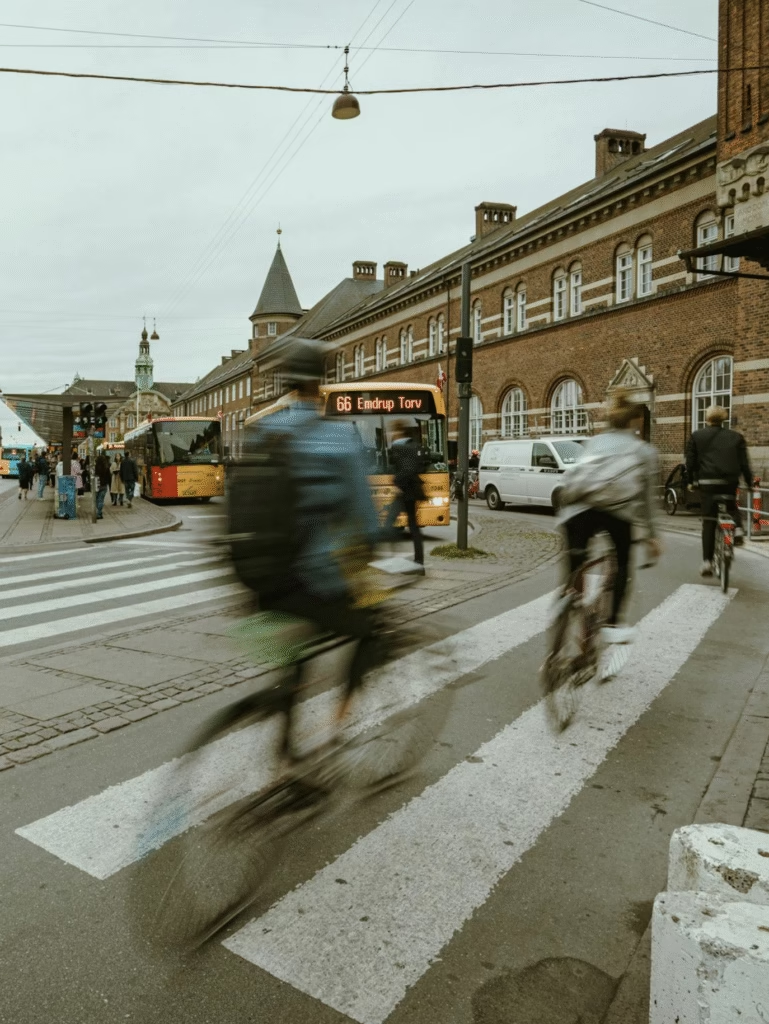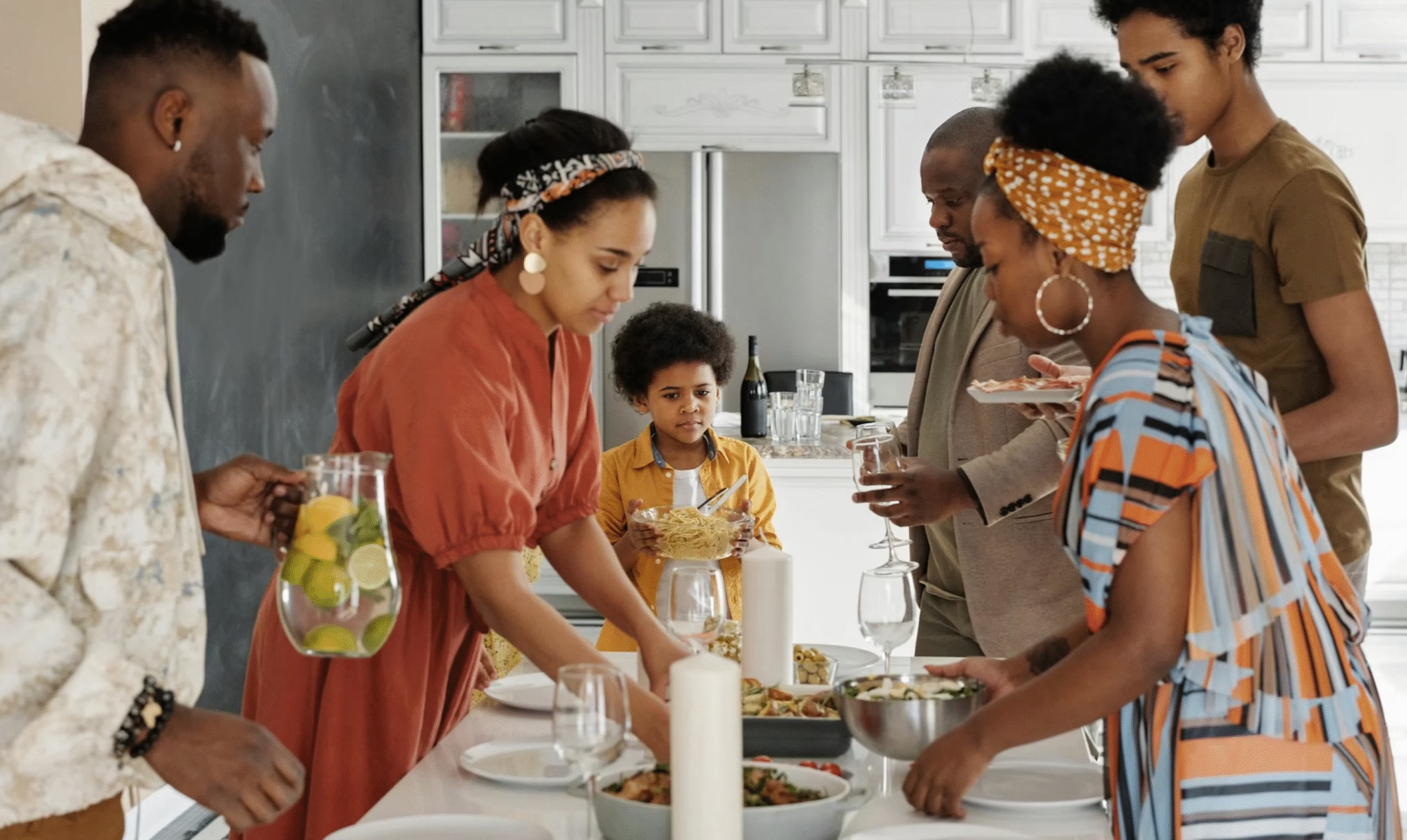Moving to a new country is like adding a new room to the house of your identity. It doesn’t mean you have to tear down the old rooms; you’re just expanding, creating more space for different parts of yourself to coexist. For newcomers to Denmark, this balance between embracing the Danish culture of life and staying connected to your heritage is a central journey.
It’s not about choosing one over the other. It’s about weaving them together to create a richer, more unique you. Here’s how you can walk that line with grace and confidence.
Some days you’ll feel wonderfully Danish, cycling in the rain and saying “Nej Tak” automatically when the cashier at Netto asks if you want a receipt. Other days, you’ll feel intensely foreign, craving the sounds, smells, and chaos of home. Both feelings are valid and part of the process.
Danish culture has some fantastic, practical aspects that make life better. You can wholeheartedly adopt these without losing yourself.


1. Adopt the Danish “Outside” & Cultivate Your “Inside”
- Embracing the “Outdoor” Culture: Join your friends or workmates for outdoor activities. This could be cycling, football, and maybe picnics, especially during the summer time when the weather is good for outdoor cosy activities. This connection to nature is universal and can be blended with your own traditions – imagine enjoying your homeland’s favourite snacks on a Copenhagen lakeside bench.
- Lean into Trust and Informality: Appreciate the low power distance, where you can call your boss by their first name, and the societal trust that lets you leave a baby sleeping in a pram outside a cafe without any worry.
- Understand “Hygge”: You don’t have to give up your loud, vibrant family gatherings. Instead, see hygge as a tool for the dark winters. Create a cosy sanctuary at home with candles and soft lighting, a space where you can recharge in a way that feels authentic to you.
2. Create Cultural “Anchor Points” at your Home
Your home is your sovereign territory. This is where your roots can shine brightest.
- Celebrate Your Holidays: Celebrate your cultural and religious holidays with all the traditional foods, music, and rituals. Invite your Danish and international friends over. They are probably curious and will appreciate the opportunity to learn more about you and your traditions.
- Cook Your Comfort Food: The scent of your childhood dishes filling your kitchen is a powerful anchor. Stock up on key ingredients at African shops or find them here to order your favourite meals. Your taste buds are a direct link to home.
- Speak Your Language: Make a conscious effort to speak your native language at home, with your partner, your children, or even on the phone with family. This preserves a crucial part of your identity and cognitive world.
3. Build a “Fusion” Social Circle
You don’t have to only have Danish friends or only friends from your home country. The magic happens in the mix. Depending on how you came to Denmark, it might also affect how fast you build your own community.
- Find Your Expat Community: Connecting with people from your own country or similar backgrounds is not a failure to integrate; it’s a necessity. They are your support system, the people who “get it” without too much explanation. They are your home away from home.
- Be Proactive: Danes can be reserved sometimes and often form their close friendships in childhood. This does not apply, though, on a night out after a few beers. You will soon find out that locals will take their time to know you but once you break the bond, then you are in. Ways to break the bond is by learning Danish, joining a club based on your hobby, dancing, school, sports or even a book club. Shared activities are the key to building Danish friendships.
- Become a “Cultural Bridge”: Be the person who expounds your culture to Danish friends. Not all the Danes you meet will have travelled to your country, and in this situation, you are the one who will tell them how your country is. Some Danes have actually been inspired and travelled to the countries they were introduced to by their African friends. So, the ball is on your court.
4. Reframe, Don’t Replace
Look at the similarities between your traditions and Danish customs and create a fusion of the two.
- Find the Common Ground: Does your culture also value family time? Great, that’s a shared value, even if it looks different. How about Christmas? Is there some sort of similarity to it? For those who have their siblings in Denmark, switching from one home to the other every second could also be a compromise and make the best of two worlds. Christmas is celebrated on the 24th in Denmark. Can you celebrate your’s on the 25th with your family and friends? The goal here is to make both cultures meet.
- Create your own Traditions: Maybe you start slowly and figure out what the two parties like, and then create your own traditions. During a birthday party, do you like to have everything ready such that when guests arrive, they just sit down and start eating, or do you prefer having over some friends that can come early and help make the party a success? All in all, it’s a mix. Find the perfect balance that suits you. You are now the author of your own unique culture.
5. Give Yourself Grace and Time
This is a marathon, not a sprint. Some days you’ll feel wonderfully Danish, cycling in the rain and saying “Nej Tak” automatically when the cashier at Netto asks if you want a receipt. Other days, you’ll feel intensely foreign, craving the sounds, smells, and chaos of home. Both feelings are valid and part of the process.
You are not a traitor to your heritage for enjoying smørrebrød, and you are not failing at integration because you need to retreat into your native language and food on a bad day.
Conclusion
Create a new, multifaceted identity that allows you to feel at home in Denmark while carrying the proud, unshakable foundation of where you come from. You are not losing your roots. You are growing new branches.



